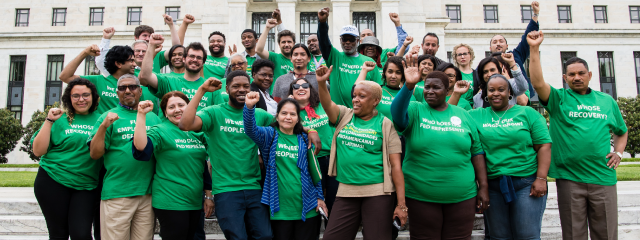Blog
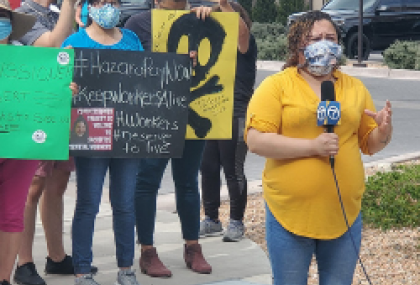
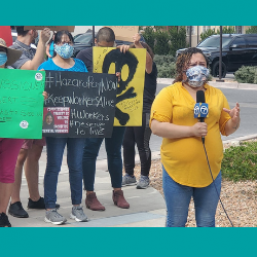
The 2021 legislative session in New Mexico was a historic one. Not only was this the first session that was held completely virtually, the New Mexico legislature passed a slew of historic bills, including the Creating a Respectful and Open World for Natural Hair Act (Crown Act) to fight discrimination against natural hairstyles, repealing an old abortion ban, and ensuring that BIPOC communities will be at the center of decisions made as New Mexico transitions to clean energy. For Organizers in the Land of Enchantment (OLÉ), two bills in particular were a long time coming: the constitutional amendment for early education and statewide paid sick leave.
There has been a push to pass paid sick leave in Albuquerque since 2015. In 2016, OLÉ and other organizations worked to get sick leave qualified for the ballot but were kept off by the Bernalillo County Commission and pushed to the 2017 election. In 2017, the question was placed on the back of the ballot and while the measure failed by 718 votes, it was discovered the next day that over 6,000 voters didn’t vote at the back of the ballot, which means there were a significant number of voters who did not realize the question was there. While the city council did not take any sort of meaningful action, the state legislature passed paid sick leave making New Mexico the 14th state that offers paid sick leave, with workers having the ability to earn 64 hours per year. The bill did not have an easy path, but an amendment that pushes the bill to 2022 helped ensure its passage.
House Joint Resolution 1, the constitutional amendment ballot measure for early education, felt like an impossible bill just a few years ago. OLÉ has been working on this bill since its inception in 2009 and families who started this fight with OLÉ in 2010 now have children in middle and high school.
As the bill was refined and gained popularity in the state House of Representatives, a handful of lawmakers continued to block the bill from even receiving a hearing in the state Senate. Those Senators all lost their seats in the 2020 primary and, while the bill still faced some steep opposition, the most powerful opponents were gone and the bill passed both chambers on the second to the last day of session. HJR1 will allow voters to decide whether or not New Mexico should make early education a right for all children aged 0-5, and if approved, New Mexico will be responsible for funding early education, much like they fund K-12 education. Because New Mexico sits on one of the wealthiest land grant permanent funds in the country (currently at $20 billion), the funding exists to pay for early education - it just needs voter approval. Passage of HJR1 will make that question even possible.
New Mexico has remained stagnant at 50th in child wellbeing since YEAR, and as a majority people of color state, it’s BIPOC children who stand to benefit from early education, as well as increased wages for early educators, most of whom are women of color. This fight is not over, but we are leaps and bounds closer than we were even a year ago. If you are interested in learning more and getting involved with OLÉ, click here.
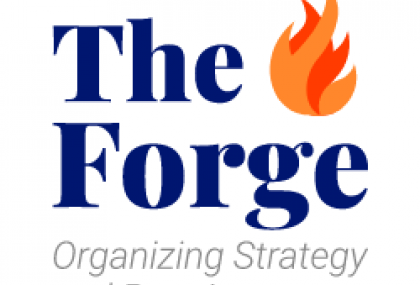
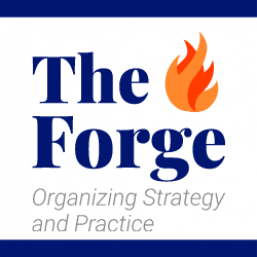
The Forge: Organizing Strategy and Practice, a project of CPD, is an online journal and community built by and for organizers across the progressive movement to sharpen our strategies, exchange tactical innovations, and build the power we need to win. Organizers are facing critical strategic and methodological questions that impact the future of our collective work. Through articles, interviews, panel discussions, and, soon, cross-sector communities of practice, The Forge facilitates and structures collaboration in order to quickly develop, test, and spread effective strategies and practices — accelerating our field's capacity to grow and innovate on-the-ground campaigns.
Over the past year and a half, The Forge has published ten issues, including The Rise & Fall of Racial Capitalism, Elections 2020: A Strategy Debrief, and Debriefing the Resistance (guest edited by Cristina Jimenez, formerly of United We Dream). The journal has also worked on several ongoing series covering key issues facing organizers, including After the Insurrection, which examines organizing strategies to combat white supremacy, Ask a Digital Organizer, and Organizing in the Age of Coronavirus. This year, The Forge is also working to develop organizers' leadership and build cross-movement relationships through new Communities of Practice and an Organizers Writing Workshop. Sign up for The Forge email list to get future issues, articles, and panels delivered to your inbox.
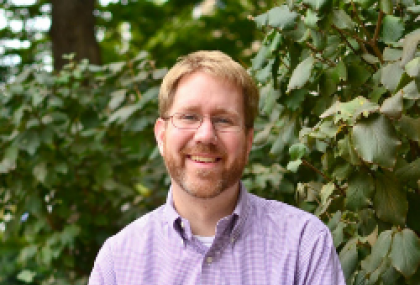
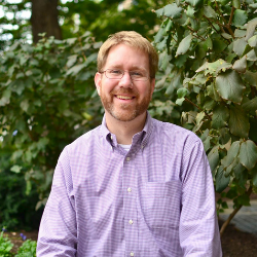
In February, CPD Co-Executive Directors shared that they were transitioning out of director roles [link to 2/1/20 blog] and, in a moment of organizational strength, passing the baton to new leaders to carry the organization forward. We are so grateful for the love and appreciation we have heard from so many in the movement as we enter into this transition and find our next leaders.
On April 1, CPD Directors Jennifer Epps-Addison, Ana Maria Archila, and Andrew Freedman, along with the board, staff, and affiliates, congratulated our colleague Brian Kettenring on his next role leading the Economy and Society Initiative at the Hewlett Foundation. We are grateful for the decade Brian spent building the CPD network, the affiliates, and the national organization. And we are grateful that, in his next role, he will take on the important work of challenging neoliberalism – our dominant economic paradigm – replacing it with an approach to our economy and society that works for all of us. Thank you, Brian, for all you have done and all you will do.

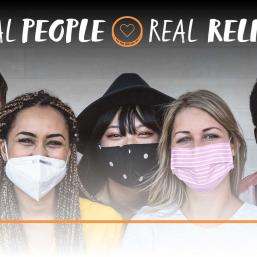
Last week, President Biden released his new American Jobs Plan to start to address the economic recovery desperately needed by working families across the country in the face of an ongoing global pandemic. It’s part of President Biden’s plan to Build Back Better and CPD network affiliates are calling on him to make sure we seize this opportunity to push for broad, bold, transformational changes for our communities in the United States and all territories – all of us, no matter our immigration status.
Our demands are simple. We want to use this once-in-a-generation moment to secure bold changes that get us closer to a world where everyone can thrive. President Biden and Congress should push to reform unemployment insurance, pass the THRIVE agenda and fully enact the Green New Deal, cancel rent and protect people’s right to safe and secure housing, create a pathway to citizenship for 11 million immigrants (5 million of whom are essential workers), and dramatically expand access to healthcare including passing Medicare for All.
Join us in demanding the Biden administration provide Real Relief for Real People!
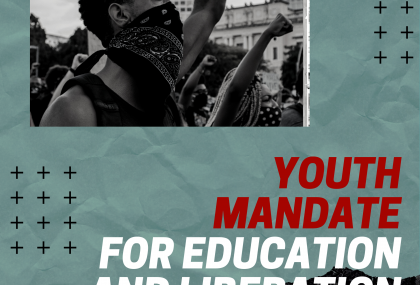
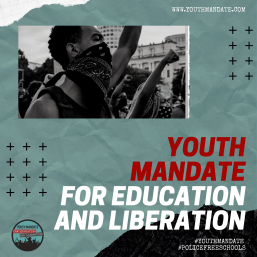
Last week, Black and Brown young people delivered their Youth Mandate for Education and Liberation calling on all levels of government to end the school-to-prison-and-deportation pipeline.
The vision and mandate demands Police-Free Schools, with three key elements:
-
Fund education, not incarceration;
-
Restore and strengthen the civil rights of students; and
-
Uplift public education; end the private takeover of schools.
By reducing police power over students, we can begin to build a liberatory education system. This vision is possible, and the movement is growing. The Youth Mandate has been endorsed by more than 150 youth-led organizations and allies and over 2,000 individuals across the country, and you can join too if you haven’t already. Sign the petition to show your individual support!
The national outcry after the police murders of George Floyd, Breonna Taylor, and many other Black people have laid bare the urgent need to address the horrific and routine police violence Black communities face across this country every day. As the nation grapples with ongoing police violence, young people of color face a dangerous truth: the police who are harassing and brutalizing them in the streets are also present in their schools.
Schools should be a place where young people can learn and thrive, but police in schools makes them places of fear and punishment. Placing law enforcement in schools increases the risk of arrest for low-level offenses, including disorderly conduct, disturbing the school, and other subjective offenses. Incidents that result in white students being referred to a principal or counselor end in Black students being referred to the police and prosecutors, despite no difference in behavior. These outcomes have an especially harsh impact on immigrant and undocumented students, who can face detention and deportation.
The school-to-prison-and-deportation pipeline is an egregious manifestation of systemic racism and state-sanctioned violence, but young organizers are showing us the way forward. Their calls for police-free schools and demands to invest in young people’s education are gaining momentum. With nearly 40 districts already having taken action towards removing police from schools, we know that young people’s goals are achievable nation-wide.
Now is the time for us all to help amplify the voices of Black and Brown youth from across the country in calling on the Biden Administration, Congress, and local governments to create police-free schools and permanently dismantle the school-to-prison-and-deportation pipeline. Read and share the full youth mandate here.
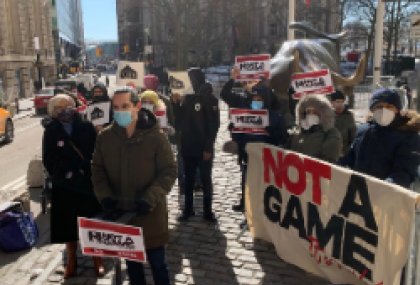
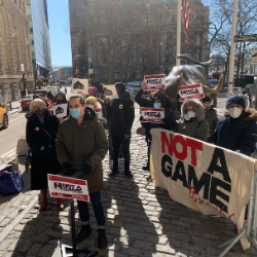
On Monday, February 8, CPD affiliates Communities United for Fair Housing (CUFFH) and New York Communities for Change (NYCC), and allies launched a monumental campaign in New York targeting internationally predatory practices of hedge funds. The New York State legislative campaign, Not A Game, it’s People, will limit the ability of hedge funds to bet on a country’s economic failure, so they no longer make billions off of debt crises in places like Puerto Rico, Nigeria, Argentina.
New York State Senator Gustavo Rivera and Assembly Member Maritza Davila, who were born and raised in Puerto Rico, are championing this effort in Albany. Puerto Rico has been devastated by hedge funds crushing the island's economy and is still rebuilding from hurricanes, earthquakes and the impact of the pandemic. These legislators have personal knowledge of why we need to address vulture hedge funds and bring their leadership and spirit of solidarity with countries confronting a similar economic crisis.
Over the next couple of months, the campaign will organize to pass state legislation and move efforts in Congress and Puerto Rico that specifically target the impact hedge funds have had on the island. Want to support this important work? Check out and share the ‘Not a Game’ campaign video!
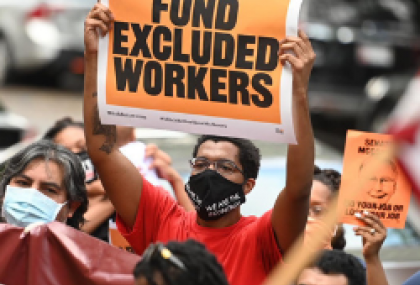
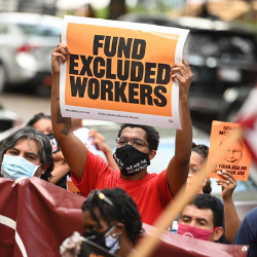
Last month, the Center for Popular Democracy released three new publications: CPD’s 2021 Federal Housing Agenda, Advancing Universal Representation: A Toolkit for Advocates, Organizers, Legal Service Providers, and Policymakers, and Essential and Excluded: How the COVID-19 Pandemic is Impacting Immigrant Families.
2021 Federal Housing Agenda At a time of global health, climate, and housing affordability crises, our country needs a visionary housing policy. We all deserve a stable, affordable place to call home. But as many as 40 million people nationwide face eviction due to inability to pay rent. We must urgently create a more just and sustainable housing system. Download our 2021 Federal Housing Agenda to learn more.
Advancing Universal Representation Toolkit The movement for universal representation—the idea that every immigrant facing detention and deportation should have the right to a publicly funded lawyer if they cannot afford one—continues to gain significant momentum. As a result of local and state campaigns, more than 40 jurisdictions across the country now fund deportation defense programs. With the growing injustices and instability that federal immigration enforcement and the spread of COVID-19 have brought to communities, local and state public investment in deportation defense is needed now more than ever. Download our Advancing Universal Representation toolkit now to learn more.
Essential and Excluded: How the COVID-19 Pandemic is Impacting Immigrant Families Organizers in New York, New Jersey, Connecticut, Pennsylvania, Nevada, and North Carolina had in-depth conversations with over 900 primarily Latinx immigrants—including nearly 400 undocumented community members. While capturing different moments of the pandemic, important issues facing immigrant communities were surfaced across the surveys. Download the brief to learn more.
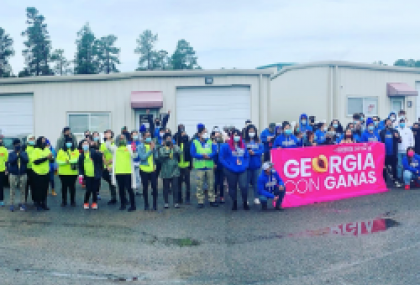
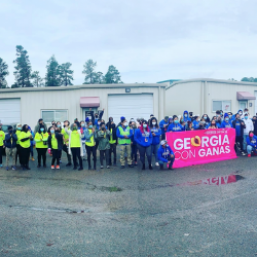
To realize the promise of a representative and inclusive democracy, our electoral system must guarantee every American the right to vote and the power to participate. In Georgia, we knew this past election cycle would be one for the history books and we jumped at the opportunity to work with CPD affiliate New Georgia Project (NGP) to execute on a thoughtful, intentional, and strategic voter turn-out plan.
As we build for the future, we are reviewing what we learned by our successful work in 2020. Through a deeply rooted partnership, we helped NGP recruit hundreds of volunteers from across the state to participate in the organization’s Election Protection program that posted line warmers and trained violence-interrupters at polling locations. CPD staff helped to teach more than 3,000 people in de-escalation tactics to protect our communities’ basic right to vote and safety at the polls, ensuring the success of movement-wide get-out-the-vote efforts so our voices would be heard.
After delivering a record voter-turnout where we took back our democracy, organizers and activists on the ground in Georgia quickly pivoted to support the Senate run-off race. CPD stayed on the ground with NGP connecting volunteers to opportunities and supporting their statewide non-partisan get-out-the-vote efforts. The CPD network showed up in full force when affiliates from Make the Roads New York and Pennsylvania, Ohio Organizing Collaborative, and SPACEs in Action DC also shared their non-partisan resources to do everything from opening and staffing offices, helping with voter registration drives, making PPE packs and even hitting the doors to turnout early voters. During the Senate run-off alone, NGP recruited 2,707 volunteers who completed 5,040 shifts from November 4, 2020 to January 6, 2021. In the same timeframe, together we made 831,126 phone calls, sent 701,606 text messages and knocked on 1,748 doors. These efforts relied on years of deep organizing and relationship building as well as smart election-mobilization.
In 2020, we saw what we can accomplish together with the power of the people at work. We defeated many attempts to suppress voters and erect massive barriers to the ballot. CPD will continue it’s work to expand and protect our voting rights and democracy, drawing down the lessons learned from our 2020 partnerships and engagement. Please consider making a donation now to support this critical work moving forward.
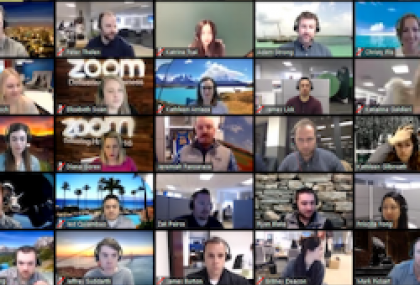
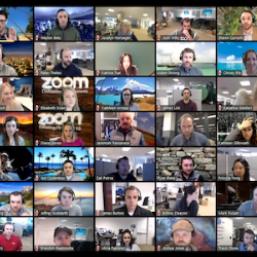
Last month, executive directors and key staff from more than 40 affiliates in the CPD/A network, along with several members of CPD/A staff, came together for a virtual convening to reflect on the challenges and victories from 2020, and to begin the work of planning our network strategy for 2021.
2020 was both a deeply painful year for our communities and an extremely important year for politics. When COVID-19 hit, CPD/A affiliates immediately adapted their organizing and support programs to address the most critical issues facing their members: fighting for eviction and rent moratoria, providing access to food and health services and direct cash assistance where needed, and working to support those hardest hit by the pandemic. Then, over the course of the summer after the murder of George Floyd, our network worked in solidarity with the Movement for Black Lives to lead and support more than 34 actions in cities across the country, calling on elected officials to defund the police and invest in Black communities.
And this was happening against the backdrop of a key moment in the electoral cycle. Our network kept its powerful gaze on the elections – affiliates helped register thousands of people to vote and hosted many events, text banks and phone banks to increase voter turnout, all while fighting to ensure that our communities had the ability to vote safely. And, as we now know, the 2020 primaries and general election experienced record turnout, particularly through early voting and vote by mail.
When we came together last month, we took a few moments to pause and reflect on the truly impressive achievements of our network in 2020. But then it became time to turn our attention to 2021. We talked through lessons from 2020, how to apply them moving forward, and the direction we should take with our work moving forward. We discussed CPD’s leadership transition that was announced in January, and the role that network affiliates will play in finding our next executive directors. We began to dig into our federal agenda and all that we hope to achieve during and after the first 100 days of the new administration. And we refocused on the next steps towards actualizing our strategic vision and building a base of one million people. But most importantly, we took time to be in the same virtual space and build community with each other - an opportunity that feels more and more rare these days. We look forward to continuing to build the power of our network to realize our vision of a country where everyone has the freedom to thrive. Donate now to support our critical work ahead.
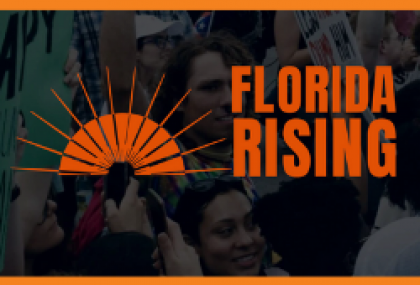

The Center for Popular Democracy is proud to announce that our leading affiliates in Florida, New Florida Majority and Organize Florida, have merged to become the largest grassroots powerhouse in the state, Florida Rising! They started the year off strong with the launch of their new website.
“We are so excited about the future of Florida Rising,” said Stephanie Porta, co- Executive Director of Florida Rising. “New Florida Majority and Organize Florida have a proud history of support for human rights and building grassroots coalitions. This merger will take us on a new journey that will solidify our commitment to Black and Brown communities, and create more opportunities for a better quality of life. Florida Rising is the next logical step that combines our efforts to empower people to take control and give our causes a louder, stronger voice for change.”
“The two of our organizations coming together means that Black and Brown communities and everyone excluded by the current status quo will have a vehicle to work together to win the policies and the representation that we deserve,” said Andrea Mercado, co- Executive Director of Florida Rising. “It is our duty to make a better, stronger, and more organized movement in Florida. We need to build stronger communities and organize more people in order to combat the Conservative stronghold built in our state. Our collective power, creativity, and love for our communities will get us to victory. Florida Rising will be a living and breathing entity created by the people for the people and a representation of the people who move us, not just an institution for our political idea. A decade after NewFM’s founding, we’re prepared to build power so that we can’t be ignored”.
The recent 2020 election revealed how much can be accomplished by joining forces. The coalition supported progressive candidates to get a seat at the table and won a $15 an hour living wage. But there is much more to do. With Florida Rising, both organizations will combine efforts to secure excellence for our communities.
Florida Rising will be a new and powerful model on how Black and Brown communities, women, femmes, LGBTQ+ and every voice left out of decision making can be liberated. Florida Rising can win the policies and representation we deserve. We are excited to continue supporting the future Florida Rising is creating!



